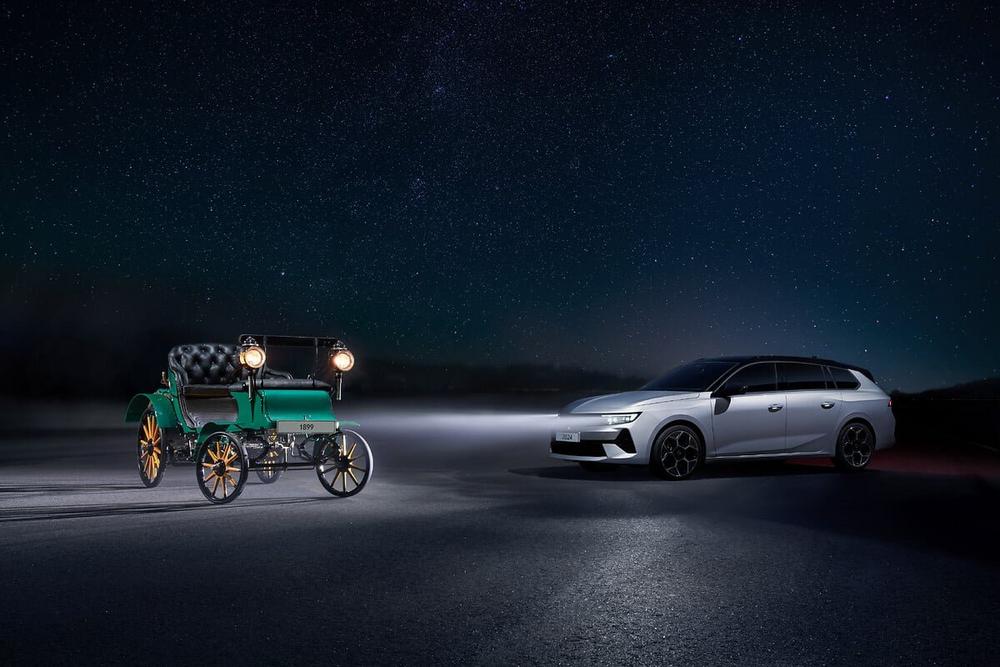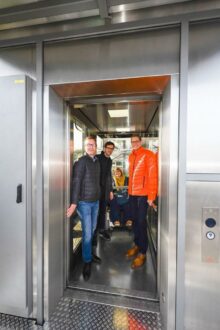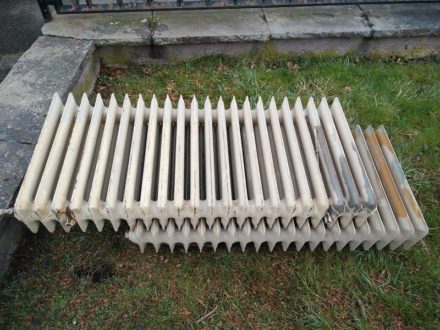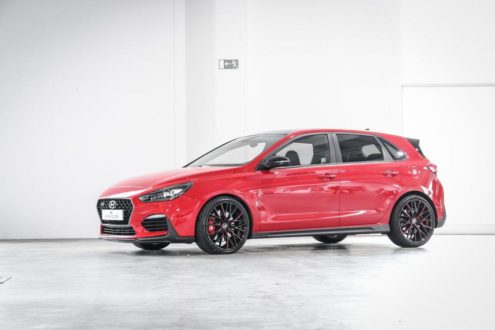
Rüsselsheim’s First: The Opel Patentmotorwagen System Lutzmann
- Spring 1899: First motor vehicle made by Opel is produced
- Individual mobility for all: 125 years of automotive innovations for millions of customers
- Current bestsellers from Rüsselsheim: Opel Astra and Astra Sports Tourer
Combined values for Opel Astra Sports Tourer Electric according to WLTP1: energy consumption 15.8 kWh/100 km, CO2 emissions 0 g/km; CO2 label: A.
On January 21, 1899, Wilhelm Opel, second eldest son of the company founder Adam Opel, signed a contract with the Dessau master locksmith Friedrich Lutzmann to purchase his motor vehicle factory. The date marks nothing less than the official start of automobile production at Opel – and thus the beginning of an era. A previously successful sewing machine and bicycle manufacturer, Opel ventured into new territory that was unknown to the company 125 years ago.
From then on, things happened in quickly: the first units of the new Opel Patentmotorwagen left the factory in the spring of 1899 as the first automobiles produced in Rüsselsheim – to date, more than 75 million Opel vehicles have followed. Opel’s credo has always been and continues to be to make individual mobility and innovations accessible and, above all, affordable to a broad range of buyers – across all segments of the Opel model portfolio.
One of the prime and current examples is the latest generation of the compact class bestseller Opel Astra, which rolls off the assembly line in Rüsselsheim. As a centrepiece of Opel’s electric offensive, it makes everyday individual mobility future-proof for many. The new Astra Sports Tourer Electric is one of the first fully electric compact class estates ever. However, the Opel Patentwagen System Lutzmann laid the foundation for continued successful automobile production in Rüsselsheim – exactly 125 years ago.
First Opel in the spring of 1899 – the Opel Patentwagen System Lutzmann
The first Opel automobile “made in Rüsselsheim” was the Opel Patentwagen System Lutzmann, which rolled off the premises in the spring of 1899. The horizontal 1,545 cm3 single-cylinder engine with a bore of 122 and a stroke of 132 millimetres achieves a maximum output of 3.5 hp at 650 rpm. This is transferred to the rear axle via a two-speed transmission with a drive belt. The maximum speed of the motor carriage is around 20 km/h. After a few months, stronger and faster versions are added. Even a delivery van is available.
Despite the euphoria of the Rüsselsheim car pioneers, the Opel designed by Friedrich Lutzmann was no longer technically up to date after the turn of the century. The desired production figures were not achieved even with the improvements in cooling and power transmission as well as with new body variants designed by Lutzmann. The time of carriage-based designs with high wheels and an engine under the seat was over. However, Friedrich Lutzmann did not see himself in a position to design a modern automobile based on the latest technical findings and changing customer tastes. Therefore, after only two and a half years, his era at Opel ended in the summer of 1901.
As a result, the Opel brothers increasingly turned their attention to France – the centre of technical progress at the time. There they meet Alexandre Darracq, an enterprising French car pioneer who has already enjoyed initial success with the idea of light and relatively affordable cars. Darracq is extremely willing to cooperate. With the arrival of the first Darracq chassis and vehicles in the winter of 1901/1902, the people of Rüsselsheim finally had access to the advanced material that gave them the chance to gain a permanent foothold in automobile production. At the same time, Opel engineers began to master the art of engine and car construction themselves. Dependence on a single person should no longer be repeated in the future. As early as the autumn of 1902, Opel showed the 10/12 HP, Opel’s first in-house design, at the Hamburg Motor Show.
From the “construction kit” to the “marriage”: innovations non-stop
In 1906, the 1,000th vehicle is already built; The Rüsselsheim car manufacturer achieved its final breakthrough in 1909 with the legendary 4/8 HP “Doktorwagen”. At 3,950 marks, it costs half as much as the luxurious competing models and paved the way for a broader section of the population to have their own automobile. The introduction of the modular system in 1910 also contributed significantly to this.
Opel was the first German manufacturer to introduce large-scale production using assembly line technology. The first car to roll off the assembly line in Germany in 1924 was the 4/12 PS “Laubfrosch”, always painted green. Just three years later, the Opel 4 PS, with a base price of only 2,980 marks, was no longer an expensive luxury item for the well-heeled, but developed into a reliable means of transport for many. At the same time, thanks to rational production, the car became more affordable from year to year – and with continuously increasing performance. Demand for Opel continued to grow, and in 1931 the 1.2 litre became the first true “people’s car”.
The next revolution in production followed soon after. In 1935, the new Olympia model became the first German mass-produced vehicle with a unitary all-steel body, which, thanks to its low weight, ensured improved driving performance and low fuel consumption. For the first time, the new design enabled the so-called “marriage” between the body and the power units. The entire production process was thus faster and more efficient, paving the way for the construction method to enter large-scale production.
Innovations today: Astra Sports Tourer Electric with Intelli-Lux LED® Pixel light
Just one year later, Opel established the tradition of the almost nine-decade history of successful compact class models: With the Kadett, Opel is the first manufacturer to bring a family-friendly and, above all, affordable compact car onto the market. And so to this day the bestsellers “Kadett” and “Astra” are synonymous with affordable innovations in the compact class.
This is also demonstrated by the latest Astra generation, designed, engineered and produced in Rüsselsheim, which is electrified, full of technological highlights and at the same time completely suitable for everyday use. Systems such as the class-leading, glare-free Intelli-Lux LED® Pixel light with a total of 168 adaptive LED elements as well as Intelli-Drive 2.0 with semi-automatic lane change assistant and intelligent speed adjustment ensure maximum safety. Driving pleasure with responsibility also means being on the road locally emissions-free. And that’s exactly what the new Astra Sports Tourer Electric makes possible as one of the first fully electric estates – with a 115 kW (156 hp) electric motor, a powerful 270 Newton meters of maximum torque and a WLTP range of up to 413 kilometres. In this way, the current Opel Astra, like all future models, will consistently push forward the brand’s electrification in the anniversary year of 2024.
[1] A vehicle’s values not only depend on the vehicle’s efficient use of fuel, but are also influenced by driving behaviour and other non-technical factors.
Opel is one of the largest European car manufacturers and a leader in the reduction of CO2 emissions thanks to its extensive electrification offensive. The company was founded by Adam Opel in Rüsselsheim, Germany, in 1862 and started building automobiles in 1899. Opel is part of Stellantis NV, a global leader created for the new era of sustainable mobility. Together with its British sister brand Vauxhall, the company is represented in more than 60 countries around the globe, continuing to enter new international markets. Opel is currently consistently implementing its electrification strategy to secure sustainable success and ensure that the future mobility demands of customers are met. By 2024, a battery-electric variant of each Opel model will be available.
Visit https://int-media.opel.com
Opel Automobile GmbH
Bahnhofsplatz
65423 Rüsselsheim
Telefon: +49 (6142) 7-70
Telefax: +49 (6142) 77-8409
http://de-media.opel.com/de
Telefon: +49 (6142) 6927466
E-Mail: leif.rohwedder@opel-vauxhall.com
![]()




